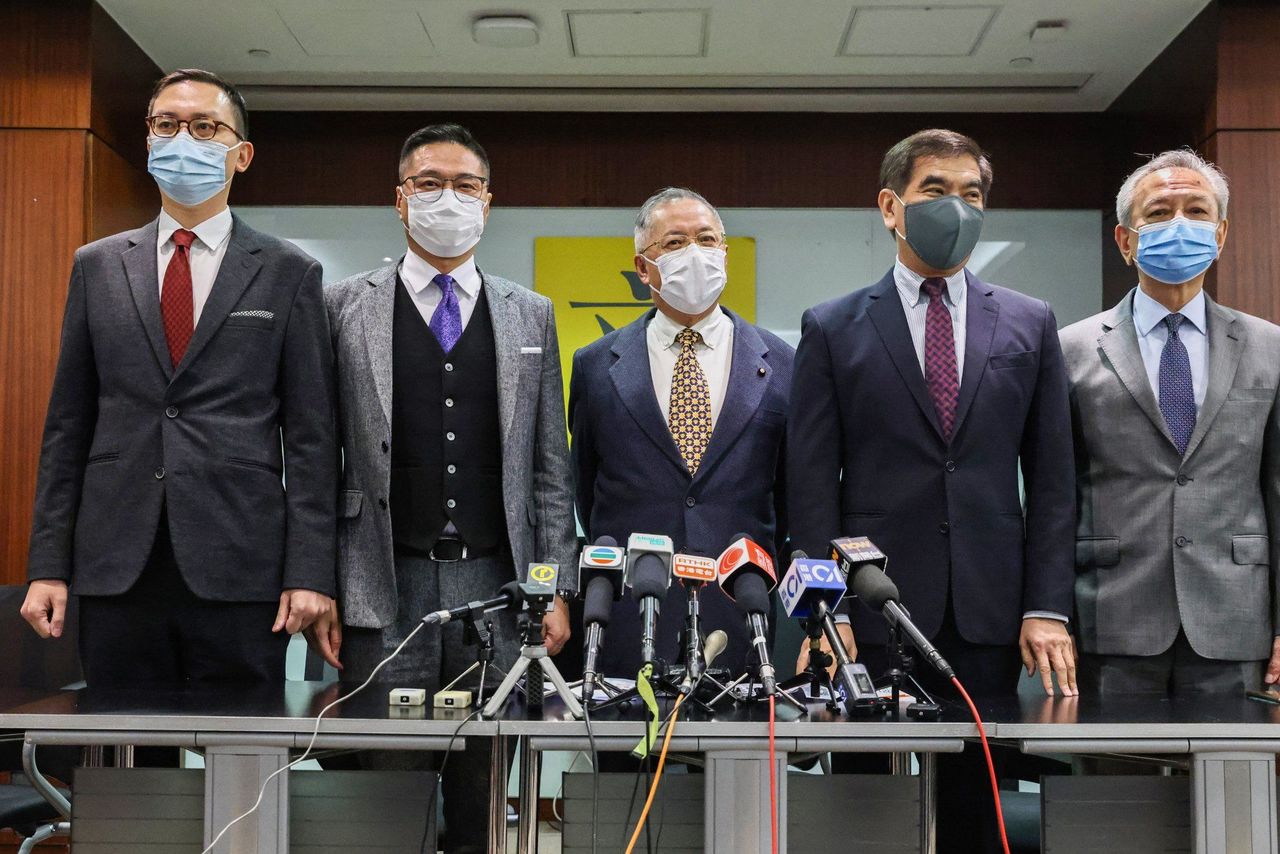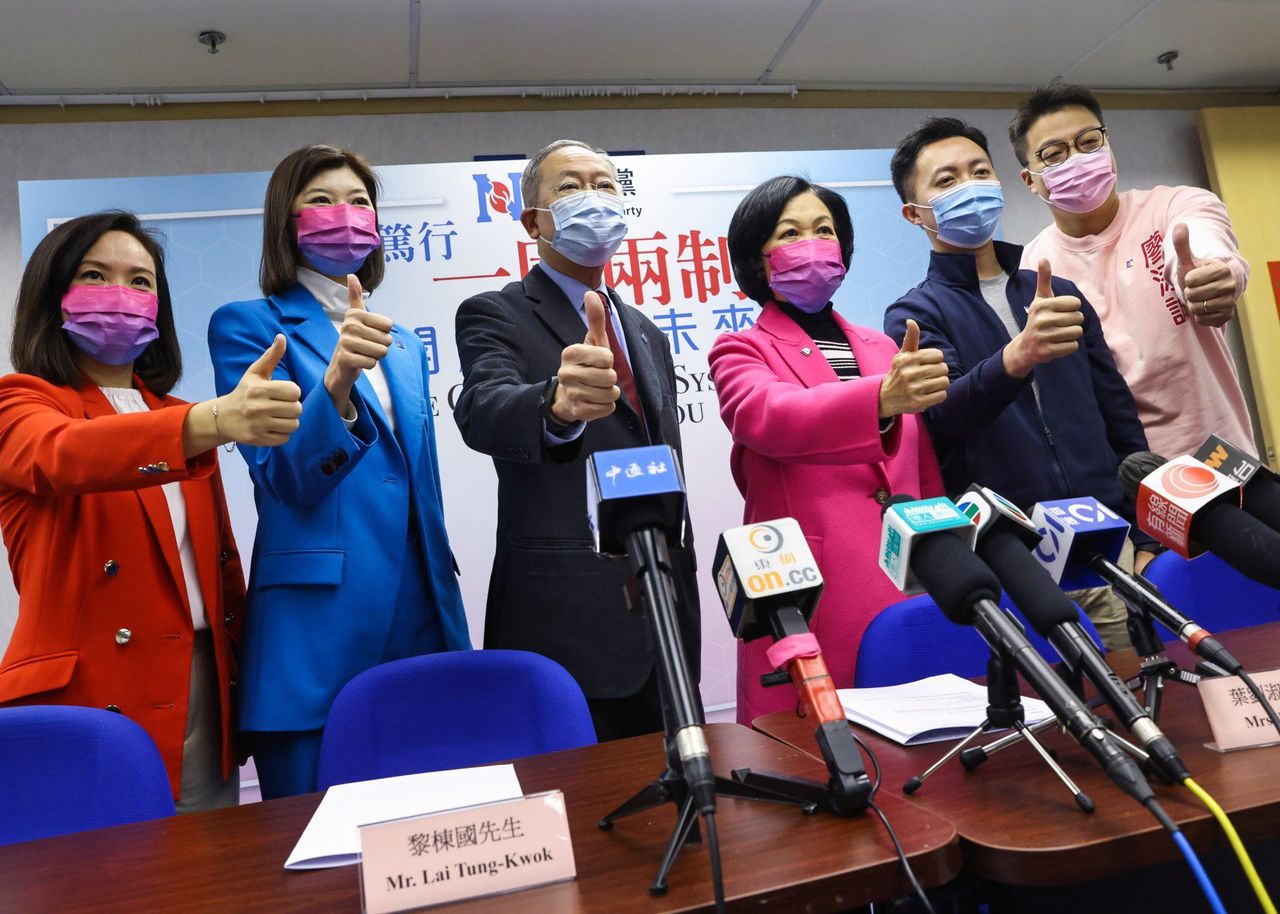Hong Kong News

Shake-up in pro-Beijing camp, with surprise losers, ‘elite newcomers’
Hong Kong’s pro-establishment parties emerged victorious in Sunday’s Legislative Council election, but observers warned that their influence could be diluted with the expansion of the legislature and the entry of lawmakers with mainland Chinese backgrounds.
One of the biggest surprises was the defeat of Liberal Party leader and incumbent lawmaker Felix Chung Kwok-pan, 58, who lost the seat he held since 2012 representing the textiles and garment sector’s functional constituency.
The party, dubbed the “bad boy” of the pro-establishment camp for sometimes opposing government policies, will still have four seats in the new Legco, the same as before, as vice-chair Michael Lee Chun-keung, 45, won a place in the Election Committee constituency.
Another party in the pro-Beijing bloc, the Business and Professionals Alliance for Hong Kong (BPA), also saw its number of seats shrink from eight to seven, after vice-chairman Christoper Cheung Wah-fung, 69, failed in his bid to represent the financial services sector’s functional constituency.
But both parties were quick to dismiss the suggestion their positions were weakened by the expansion of the Legco from 70 to 90 seats and the arrival of new elites elected on Sunday.
Liberal Party chair Tommy Cheung Yu-yan, 72, re-elected to represent the catering sector, said: “The new Legco will have a more balanced representation, and the Liberal Party has been good at communicating with various sectors to work out solutions to problems.”
In a similar vein, BPA honorary chairman Andrew Leung Kwan-yuen, 70, re-elected to represent an industrial sector, said: “We should not see it as a power-grabbing game. All parties and all legislators serve Hong Kong and the Hong Kong people.
“The most important is that various parties or members can work together for the betterment of Hong Kong people, not the interests of the party or the interests of individuals.”
 The Liberal Party saw a surprise upset, with leader and incumbent
lawmaker Felix Chung (second right), losing the seat he has held since
2012.
The Liberal Party saw a surprise upset, with leader and incumbent
lawmaker Felix Chung (second right), losing the seat he has held since
2012.
Sunday’s election was the first major poll since Beijing overhauled the city’s electoral system to ensure that only “patriots” run Hong Kong.
The expanded Legco has 40 seats for the powerful new Election Committee constituency, 30 for the mainly trade-based functional constituencies and only 20 for directly elected members from geographical constituencies.
The election saw a record low turnout, with only 30.2 per cent of eligible voters casting their ballots in the directly elected geographical constituencies.
The big winner in the pro-Beijing camp was the Democratic Alliance for Betterment and Progress of Hong Kong (DAB), which won 19 seats, up from 13 before.
Its candidates in the 10 geographical constituencies bagged a total of 680,563 votes, slightly over half the total votes cast. In 2016, when the opposition took part in the election, the DAB won 361,617 votes or about 16.7 per cent of the total.
 The New People’s Party, led by Regina Ip (third from the right), upped its seat count from two to five.
The New People’s Party, led by Regina Ip (third from the right), upped its seat count from two to five.
The New People’s Party, chaired by veteran lawmaker Regina Ip Lau Suk-yee, 71, also improved its showing, winning five seats, up from two before. Ip won in the Hong Kong Island West geographical constituency.
The Federation of Trade Unions doubled its seats to eight, with leader Stanley Ng Chau-pei, 51, winning handsomely in the Hong Kong Island East geographical constituency. He captured 64,509 votes, well ahead of the DAB’s Edward Leung Hei, 36, who won the constituency’s second seat with 26,799.
Brave Chan Yung, 51, a DAB vice-chairman also elected on Sunday, talked up the party’s success, saying it had established itself as a brand name in local politics, fielded strong candidates and earned the support of voters.
“For any young talent who would like to set foot in politics, join the DAB,” he said.
But DAB chairman Starry Lee Wai-king, 47, crowned “Queen of Votes” for scoring almost 96,000 votes in the Kowloon Central geographical constituency, was more circumspect.
Asked if her party’s big win would mean more influence in the Legco, she replied: “You are overestimating us. There are 90 seats in the legislature so we still have to work with other parties in future.”
Chinese University political scientist Ivan Choy Chi-keung was concerned that the dominance of the pro-Beijing bloc would result in the new Legco being “overly cooperative” with the government.
He did not believe the DAB’s strong performance would boost its influence in the enlarged Legco, saying Beijing might “not wish to have a ruling party or a party with leading power in Hong Kong”.
He expected Beijing’s liaison office in Hong Kong to do more coordination within the pro-establishment camp, given the rise of lawmakers with mainland links.
Political novice Gary Zhang Xinyu, 32, of the New Prospect for Hong Kong, founded by mostly mainland-born Hongkongers, pulled off a surprise win in the New Territories North geographical constituency by defeating pro-establishment candidate Wilson Shum Ho-kit, 43.
Nine other winners – three from the functional constituencies and six from the Election Committee constituency – also have close links to the mainland or state-owned enterprises.
Lau Siu-kai, vice-president of Beijing’s semi-official think tank, the Chinese Association of Hong Kong and Macau Studies, said one aim of the city’s electoral reform was to maintain a balance of power in the legislature.
He said that in the past, the government could not rely on stable, majority support in Legco as some pro-establishment lawmakers avoided getting too close to the government to appease their constituencies or members of the public.
He expected the new Legco to work as a “problem-solver”, supporting the administration to improve the city’s governance.











